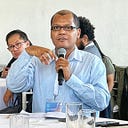Gender Inclusion and Internet Governance
Topics related to gender have formed from the beginning part of the debates at Internet Governance -IG from now on-. Different stakeholders groups have brought to the process a gendered focus and lens to policy issues on gender and internet governance: sexuality and freedom of expression; addressing online-gender based violence: access to the internet and the gender digital divide ; the importance of fostering women’s and LGBTQI’s leadership in innovation and STEM fields; economic, social and cultural rights including education; privacy and surveillance and its gendered impact; to name a few.
Intersecting within and between them are issues of gender, both as an analytical lens, as well as basic equality in participation express concern, however, that there are still significant digital divides, such as between and within countries and between women and men and other expressions of gender (Trans, Queer and Intersex), which need to be addressed through, among other actions, strengthened enabling policy environments and international cooperation to improve affordability, access, education, capacity-building, multilingualism, cultural preservation, investment and appropriate financing. Further, we acknowledge that a gender divide exist as part of the digital divides, and encourage all stakeholders to ensure the full participation of women and LGBTQI people in the information society and women’s access to new technologies, especially information and communications technologies for development.
This provide an opportunity as well as clear impetus for to seriously consider gender in current developments that will impact on te future of the internet. To accomplish that we need to take in action the following:
- Key issues and challenges: Women’s and LGBTQI human rights, intersectionality, access, addressing gender-based violence, education and economy, new and emerging technologies.
- Gender Inclusion and Internet Governance: Beyond numbers; Diversity within stakeholders groups; Capacity building; Improvements to the IG (it is important for the IG to fully integrate gender concerns in its work).
- Visibility of Women and LGBTQI as part of IG and ISOC within a SIG (Special Interest Group).
This brings a greater efforts have to be to ensure that women’s and LGBTQI’S diverse perspectives are brought to the forefront in each stakeholder group. Ultimately, a rights based approach to Internet governance is the only safeguard for women and LGBTQI community to fully enjoy the benefits of the Internet.
That’s why access to the Internet is extremely important for women and LGBTQI people to be able to gain information which may not be available to them otherwise. This will also facilitate them to achieve full realisation of their rights, especially in case of those from the marginalised communities.
In conclusion, the Internet can also function as the harbinger of citizenship rights, bridging their right to be informed with the duty of the governance institutions to inform and debates around internet governance issues, such as content regulation, privacy, access, freedom of expression among others.
